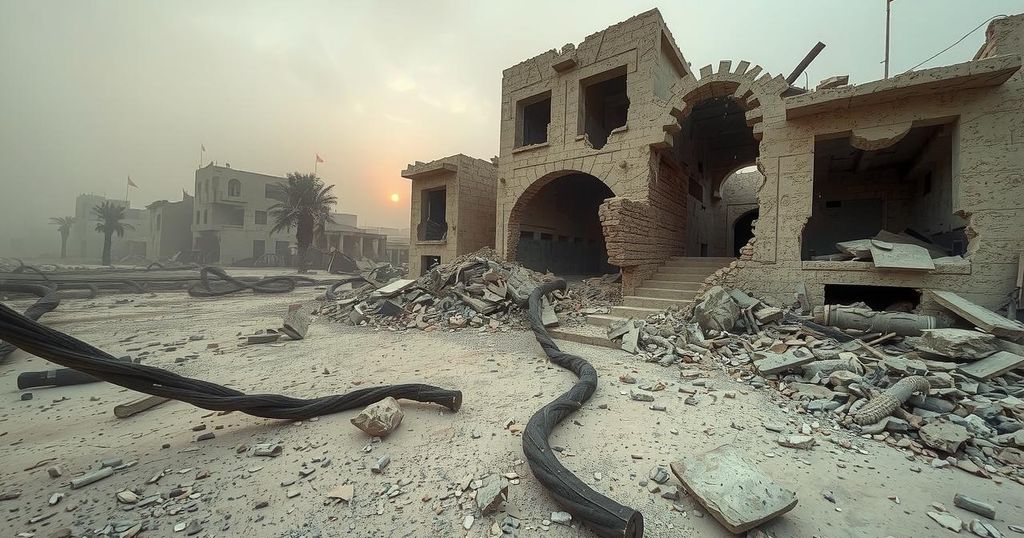Sudan’s gold trade is vital to its wartime economy, mainly funneled through the UAE. Despite the war’s toll on the economy, record production has been reported for 2024. Significant portions of production are smuggled, while government and paramilitary factions benefit financially. The UAE’s role in the trade raises concerns amidst ongoing accusations of complicity in conflict-related crimes.
Sudan’s gold industry has emerged as a crucial economic lifeline amid the ongoing conflict, with a substantial portion of its trade routed through the United Arab Emirates (UAE). Both official and non-governmental organization (NGO) sources indicate that the trade enriches military factions, including the armed forces and paramilitary groups. Despite the war’s devastation on the country’s economy, the government recently reported record gold production for 2024.
Economist Abdelazim al-Amawy identified the nation’s gold reserves as a significant factor prolonging the conflict. Researcher Marc Ummel from Swissaid emphasized the connection between gold and war, stating, “To solve the war in Sudan, we have to follow the gold, and we arrive at the UAE.” Official claims from the UAE, however, have dismissed these allegations as unfounded.
Sudanese officials and mining sources reveal that nearly all the gold from Sudan reaches the UAE through various channels, including smuggling and direct ownership of mines by Emirati firms. The Sudan Mineral Resources Company reported a gold production increase to 64 tonnes in 2024, from 41.8 tonnes in 2022. Despite legal avenues yielding $1.57 billion to the state, it is estimated that almost half of this gold is smuggled.
The paramilitary Rapid Support Forces control several mines that contribute to the gold trade. Smuggling routes extend to Chad, South Sudan, and Egypt before culminating in the UAE. In a recent international case, Sudan accused the UAE of complicity in the genocide by the RSF, which the UAE has categorically denied, framing it as a publicity stunt.
The Kush mine, a key asset located between Port Sudan and Khartoum and owned by the Dubai firm Emiral Resources, resumed production during the war, generating considerable output. Reports indicate that up to 90 percent of Sudan’s legal gold exports end up in the UAE, although other markets like Qatar and Turkey are being considered.
The UAE’s rise as a leading gold exporter coincides with its designation as a primary destination for smuggled African gold. Despite presenting a regulatory framework for responsible sourcing, experts like Ummel argue that the regulations are not effectively enforced. Inconsistencies in reported imports from neighboring nations suggest widespread smuggling activities.
Notably, RSF commander Mohamed Hamdan Daglo has maintained significant control over gold mines, establishing a mercenary business that has been linked to substantial funding of armed conflict through a network of companies. Estimates indicate a minimum of $1 billion per year in wartime earnings from these operations, underlining the intertwined nature of Sudan’s gold trade and ongoing violence.
In conclusion, Sudan’s gold industry plays a pivotal role in funding the ongoing war, with substantial flows directed to the UAE. This relationship has fostered a cycle of conflict sustained by economic motivations, where both official and illicit gold trade continues unabated. Despite claims of regulatory scrutiny from the UAE, the realities on the ground suggest an intricate and largely unregulated gold network contributing to humanitarian crises in Sudan. Without serious international intervention and sustained oversight, the cycle of violence and exploitation is likely to persist.
Original Source: www.rfi.fr




